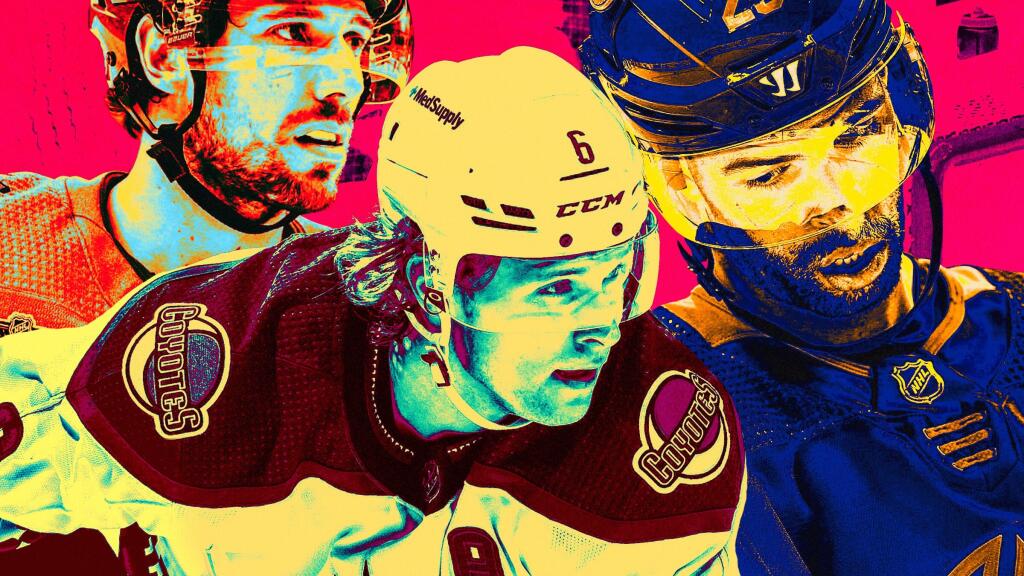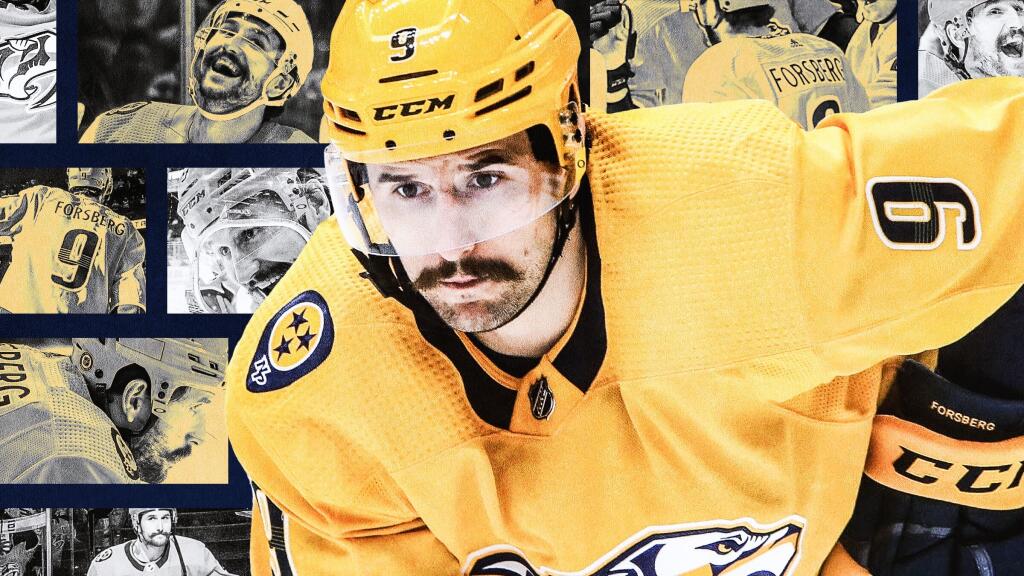Johnny Gaudreau's brilliant play this season, and how his impact extends beyond just the point totals
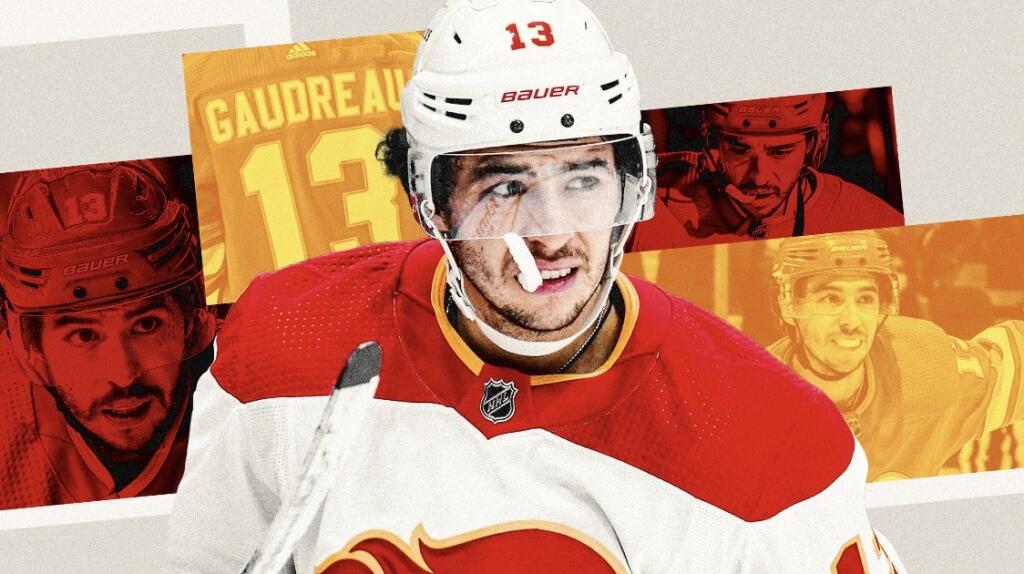
There's no hotter team in the NHL right now than the Calgary Flames (pun fully intended). They've won 10 straight games, and have done so in emphatic fashion without leaving the outcomes to chance. They've finished nine of those contests off in regulation time, comfortably outscoring their opponents by a 42-15 margin along the way.
For the year, they're now up to eighth in point percentage, behind just the Colorado Avalanche and Minnesota Wild amongst Western Conference teams. They've got a back-to-back set lined up against the latter, leaving the door open for potentially leapfrogging them as well. More importantly for the time being, they've also created a bit of breathing room between themselves and the Vegas Golden Knights in the Pacific, currently sitting four points up on them with two games still in hand.
There's no shortage of individual reasons for their team success. Jacob Markström is building a legitimate case to be high up on Vezina Trophy ballots at season's end. The same goes for Elias Lindholm with the Selke, and head coach Darryl Sutter for the Jack Adams. They just made a big splash by acquiring Tyler Toffoli, which only bolsters their already impressive group.
But none have been as uniquely impactful as Johnny Gaudreau, who has been operating in an entirely different stratosphere through the first 50 games of the season. He not only leads the Flames in a number of key offensive categories, but sits atop the entire league in them as well.
I decided to go back and watch every shift he's taken so far to get a better sense of how he has generated that production, and why he's been so effective. I came away from the viewings even more impressed, because the degree to which he's influenced these games all over the ice really popped off the screen. The point totals he's been racking up are great and will understandably receive most of the attention, but it's clear that his contributions to the way Calgary has been playing go well beyond just that.
Let's use some of the video work to show the manner in which he's been creating for both himself and his teammates, and mix in some other hand-tracked stats to better quantify the tremendous year he's having.
Defensive effort
We'll start off with the less glamorous stuff, because this is a Sutter team we're talking about after all. It goes without saying that Gaudreau will never be mistaken for Patrice Bergeron, but he doesn't really need to be either.
For a player as offensively gifted as Gaudreau, the bar he needs to reach defensively is relatively low. He mostly needs to find a way not to be a complete liability without the puck, so that his line isn't having to constantly wasting most of its time buried in their own zone. Just being competent enough to achieve that comes down mostly to effort, and making sure that you're engaged enough to be involved.
While there will always be physical limitations to what he's capable of in 1-on-1 battles that rely on size and strength, Gaudreau has found a way to compensate for it with a high level of awareness and activity in open space.
His puck pursuit in particular has been excellent this season. He's used his speed to get back into the play, and disrupt opposing rushes before they can fully materialize by harassing puck carriers. Watch how hard he backchecks, forcing his way into the picture to make some sort of change in possession:
There are still undoubtedly times when he can get into some trouble because of his natural inclination to try and leak out on the rush. But he's found a happy medium between not totally cheating on his responsibilities, while still making himself available to receive an outlet pass and be the first one out on the break.
Sharing the ice with someone as diligent as Lindholm (and Matthew Tkachuk) has certainly helped with that, because they're able to condense the responsibilities he has deeper in his own zone, and cover for him when he sniffs out those opportunities to get aggressive up ice.
The three of them have been a match made in heaven stylistically, and the results speak for themselves. In nearly 600 5-on-5 minutes together, the Flames are up 45-14 with them on the ice, while controlling 58.7 percent of the shot share and 61.2 percent of the high-danger chance share (via NaturalStatTrick). There have been some awesome combinations around the league, but they've objectively been the best of the bunch.
Their ability to control the flow of play has really helped feed into Calgary's trademark swarming, puck-possession style. By maintaining connectivity between their forwards and defencemen, they're able to really crowd opponents and limit available space for manoeuvring. Without much gap to speak of, generating any kind of functioning pace becomes a miserable endeavour for them, and they're never really able to get going.
As you can see in that video, the Flames thrive at stopping the opposition in their tracks and causing turnovers. Whether it's in the offensive zone on would-be breakouts, or later on in the neutral zone, even after losing control of the puck they're able to quickly get back to playing downhill. Which brings us to what comes next...
Neutral zone transition
There's a misconception about Sutter's system and how his teams play. I'm sure it's not an especially pleasant experience for whoever is playing against them (or their fans watching), but that shouldn't be confused with the hockey being boring. When they're humming the way they have been for big chunks of this season, it's actually satisfying to see how ruthlessly efficient they are at flipping the ice over and over again to their advantage.
When Sutter was first (re)hired by Calgary, there was some angst about whether he'd clash with Johnny, and what the fit between the two would look like. Not only have there been no issues, but it's actually been quite an ideal working environment for Gaudreau. By creating situations where they're able to play fast and keep attacking as a team, his individual strengths have really been able to shine through.
As with any healthy relationship, both parties deserve credit for compromising to meet somewhere in the middle in an effort to get the most out of each other. If we're giving the player love for buying into the coach's defensive principles, then we similarly need to recognize the coach for allowing the player the freedom to do what he does best. Sutter has certainly given Gaudreau the green light to freelance in transition, which can be seen as the ultimate vote of confidence considering how his Los Angeles Kings used to play in the mid-2010s.
I tracked all of Gaudreau's attempts at navigating the neutral zone and entering the offensive zone at 5-on-5, and here's the breakdown of how he went about it. You can see that he's not particularly keen on dumping the puck in, only doing so in specific situations where there's some sort of numbers advantage for either side -- which could be near the end of a shift where he's left by himself to buy some time for a line change, or if he recognizes that it's the most efficient way to strategically allow someone like Tkachuk to skate into retrieving it along the boards.
In any other normal scenario, he's trying to carry it in and make something positive happen while maintaining possession throughout. Which makes perfect sense, because he's one of the best in the entire league at pulling it off. More than three-quarters of the time, he's been able to successfully breakthrough by either entering himself or hitting a teammate on the move with a completed pass:
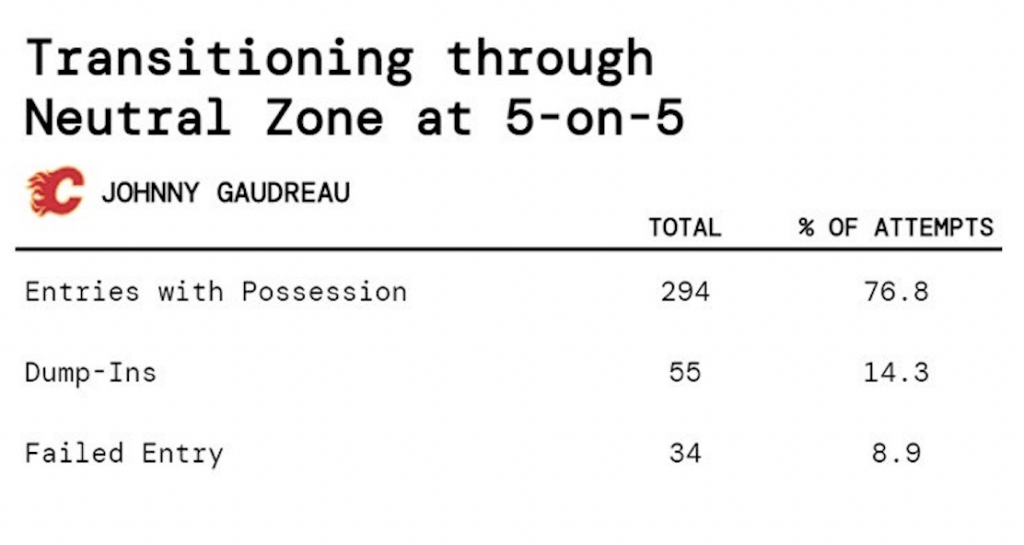
It's well established that finding ways to enter the zone with full possession is the most efficient way to generate shots and scoring chances. That intuitively makes sense, since it allows you to instantly string together passing sequences or solo drives to the net, as opposed to having to expend valuable energy trying to retrieve a puck you just gave away.
That cat-and-mouse game at the blue line is highly compelling to me philosophically. While I'm sure that opposing defenders know this and would love to make life harder for him, Gaudreau puts them in such an unenviable position where they essentially have to pick their poison.
Aggressively defending by contesting his entry attempt head-on sounds like the right move on paper, but if you do, he's got so many different moves that he can embarrass you with one-on-one. He's so slippery, able to use his size to his advantage by sliding under checks and evading them.
Which is why defencemen tend to typically sag back and give him space to glide into the zone relatively unopposed as a means of self-preservation. But doing so only delays the pain, because he'll gladly pick you apart if you let him do so. He's so good at keeping his head up and surveying the landscape as he enters the zone, waiting for the right lane to open up. Watch how he's able to manipulate the geometry of the playing field, biding his time until the trailer enters the picture in delayed transition.
The result of doing so allows the Flames to benefit from rush chances, even when it doesn't initially look like that dangerous of an opportunity. It also surely makes him such a fun teammate to play with, knowing that you're going to get amazing opportunities served up to you if you just put the effort in and sprint up the ice the best you can.
Offensive zone playmaking
While we've already taken a look at his ability to create off the rush, I wanted to also highlight how effective he is off of in-zone set plays as well. Specifically by using the net to his advantage as a barrier between himself and the defence, before coming out and hitting a teammate in the slot.
Similar to pass protection in football, there's only so long you can expect your players to be able to legally defend against moving receivers before one of them ultimately comes open. You can apply that concept here aptly, in which Gaudreau is a quarterback that's sitting in the pocket and waiting for a target to present itself. When it does, he's quick to get it to them where they can one-time it, often before the opposing goalie can square up on the shooter:
Watching Flames games, it sure seems like Gaudreau has the puck on his stick nearly all of the time and is consistently making something dangerous happen with it. So I wanted to try and quantify that more accurately, by tracking his total shot contributions whenever he's on the ice.
To do so we're essentially adding up all of the times he played a direct role in a shot attempt, whether it was him firing the puck or setting up a teammate to do so. He's responsible for nearly 12 combined looks per game, which speaks to how much of the team's offence flows through his stick.
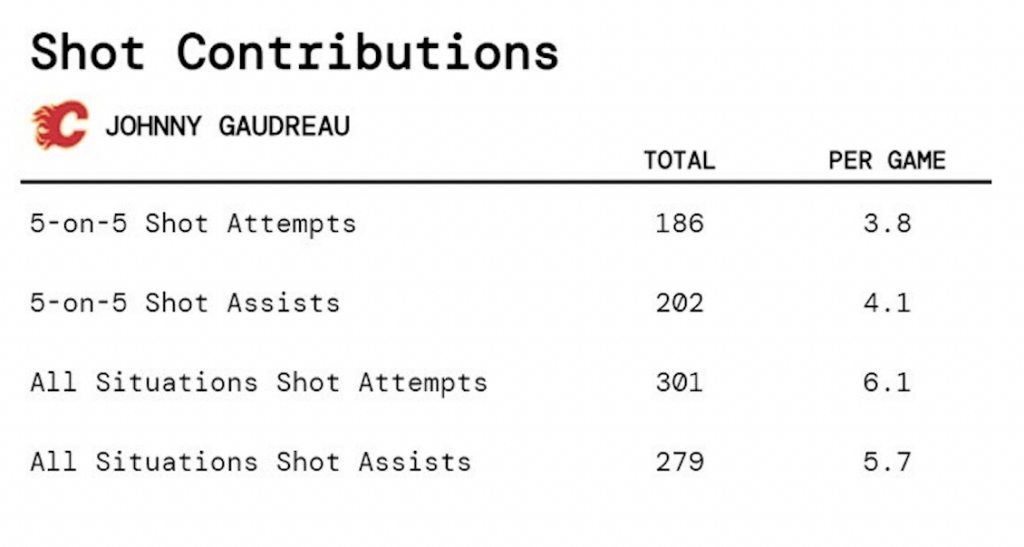
This doesn't necessarily apply to Gaudreau, because he's also third in assists (44) behind just Jonathan Huberdeau and Connor McDavid, and first in 5-on-5 helpers (34). Any way you slice it, he's been one of the most devastatingly effective playmakers in the game this season.
But on a bigger picture level, I still yearn for the day when 'shot assists' become publicly available for every player, the same way other counting stats are. They make for such a useful piece of the puzzle when quantifying a player's contributions, especially when it comes to describing the extent of their playmaking.
Raw assists have their purpose, but they're also not exactly an individual stat because of how dependant they are on the skater actually taking the shot. You can be the best passer in the world, but if you're not playing with finishing talent and players that can bury the opportunities you create for them, you won't get full credit for it which seems silly. When you're setting your teammates up the way Gaudreau has consistently, you should deserve some credit for it regardless of what they happen to do with it.

